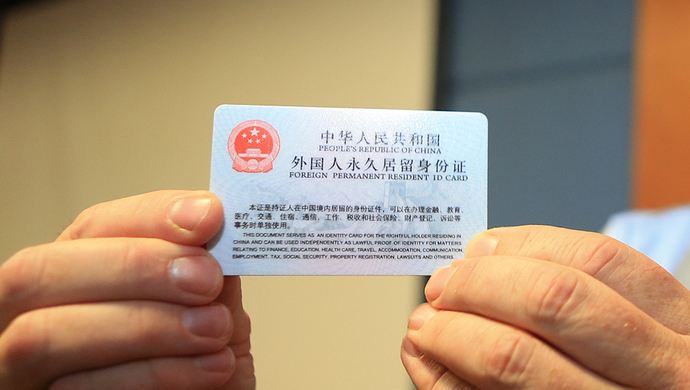
Most job seekers know (or ought to know!) that you should tailor your resume to the job you're applying for.
If you're applying for a programming job, don't fill your resume with all of your teaching experience - it's just not relevant. The HR people reading your application will just skip over it anyway, or worse, skip your whole CV and move on to the next applicant.
Similarly, when applying for a job in China, you need to tailor your CV to the expectations of the Chinese HR professionals and line managers who will be reading it and looking for some very specific information.
The first thing you should do when looking for a job in China is to make sure your CV is up-to-date and appropriately formatted.
Here's the key information that Chinese HR professionals who are reading your CV are looking for:
1. NATIONALITY
This is often the first piece of information HR departments look for. Many companies that hire international talent have specific countries or regions they do business with. Ideally, they’re looking for someone from that region who understands the nuances of language, culture, business practices, etc. It is difficult for a company to have an American employee deal with its Indian business, for example, though of course there are exceptions based on individual experience.
For example, a recent client was looking to expand their business overseas to several new markets. This meant engaging with customers from different countries with different languages, histories, politics, and cultures. Naturally, they preferred candidates from those countries who not only were native speakers of the language, but who were native to the country and culture. By knowing the market inside out and being up on all the latest local trends, they could represent the company in a natural and authentic way.
Nationality can also be a matter of visa regulations. For language teaching jobs, the government will normally only issue a work visa to individuals from native language countries.
2. EDUCATION
Education here means your degree information: bachelor degree, master degree or doctorate, or any professional certificates, technical diplomas, etc. that you have earned (don't bother listing programs you've abandoned halfway through). They are expected to be listed prominently and precisely. This is crucial because Chinese visa policy requires a bachelor degree or above for visa applicants. Otherwise, it is impossible to work legally in China. There are, however, a few exceptions for those people who are very talented or seasoned in a certain field but without any formal degrees (i.e. an A-level talent under the new system).
3. PREVIOUS EXPERIENCE
Your CV should describe all your relevant working experience. What HR departments are specifically interested in knowing is in which country you earned this experience, the exact year/month you started and finished, and what employer you worked for. If your previous employers cannot be found on the internet (e.g. an official website or in an online business directory), you should give a short introduction of the company so that HR can better understand your employment history.
4. AGE
In many countries, this information is considered private and employers are not legally allowed to specify age in a job advertisement. But if you’ve spent any amount of time searching through Chinese jobs posts, you will see that requiring a specific age is common practice, therefore listing your date of birth on your CV is advisable.
Why do employers set out these requirements? You must be at least 18 years of age to obtain a Chinese work visa. Anyone under 18 need not apply. Further, the government generally won't issue a work visa to individuals over 60 (though again, there are exceptions for top talents). Employers also often have a specific age range in mind they believe is ideal for the advertised position. Entry level positions are usually targeted at younger workers. Job ads for consulting or expert work are often aimed at older workers. And some jobs like kindergarten teacher can be very specific and might ask for someone between 20 to 30 years old.
5. PROFESSIONAL PHOTO (HEAD SHOT)
Again, this might go against the norms, or even laws, of your home country, but including a head shot is standard practice in Chinese CVs. Don't just use any old selfie either; make sure you use a professional-looking photo (think LinkedIn profile pic, not Facebook or Instagram).
6. CHINA AND CHINESE LANGUAGE
Since you are applying for a job in China, any of your previous and current experience in and with China will be helpful, including listing any periods of study in China, your internships in China or in a Chinese company in your home country, and your Chinese language skills.
7. YOUR VISA
For those who already hold a Chinese visa we strongly suggest that you list your visa on your CV. Include such details as what kind of visa you have and when it will expire, if possible, with an explanation of which company sponsored this visa and why you are leaving your last employer.
Finally, a few last tips:
List your work experience in reverse chronological order (i.e. most recent first).
If you have gaps in your employment history, periods when you were out of work, please explain to avoid any misunderstanding with your HR readers.
Keep your CV description genuine. Some applicants provide fake information to make themselves more attractive to potential employers. This is a very bad idea, not least of which because companies in China are increasingly using background check services to validate claims applicants make in their CVs.
It's nice to make your CV stand out from the pile with some creative and colorful formatting, but you should know that most HR departments are using software to automatically parse your CV and extract all the information (name, contact info, experience, etc.) Your fancy, graphic-heavy CV could actually defeat the system and prevent it from accurately collecting your info.
All HR departments and hiring managers are interested in one thing: hiring the right talent. A CV that presents the above key information in a clear and precise way will help you receive a reply from a job application more easily and promptly. Whether it’s your first job or you are changing positions mid-career, when preparing your CV, please do not overlook these important details.
If you enjoyed this article and would like to see more like it, please share it with your friends and colleagues!









 京公网安备 11011202001511号
京公网安备 11011202001511号